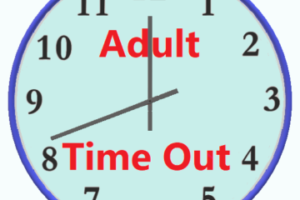It is important to start with definitions of domestic abuse/violence. This blog is about sexual abuse.
Sexual Abuse:
- forces the victim to do something sexually she doesn’t want to do
- prevents her from doing something sexually she wants to do and/or
- causes her to feel afraid
A more global definition of domestic abuse/violence is: Domestic abuse is not about losing control, but a systematic method of asserting and maintaining power and control over a current or former intimate partner or a situation involving a current or former intimate partner.
For 40+ years I have worked with both victims and perpetrators of domestic abuse/violence in which the perpetrator was male and the victim was female. This checklist has been developed exclusively for male to female domestic abuse/violence. While I acknowledge there are other forms of interpersonal abuse, for example, female to male abuse, or same sex abuse, these are not my areas of expertise. For this reason, any reference to “perpetrators” or “batterers” will be in reference to males. Any reference to “victim” or “survivor” will be in reference to females.
If my four decades of experience have taught me anything about abusive relationships, it is that men are abusive because they physically can, and because it gets them what they want in the shortest amount of time with the least amount of effort.
I am also a firm believer that just as men learned how to be abusive, they can unlearn that behavior, and relearn how to be nonabusive. I have seen it happen. However, the abusive behavior must be recognized as being abusive and/or violent.
Trigger Warning: If you are the victim of domestic abuse/violence and have found something in this blog to be triggering, someone is available 24/7 to speak with you. You are not alone. If it is safe to do so, please contact:
- Domestic abuse/violence: National Domestic Violence Hotline at 800-799-7233
- Sexual abuse/assault: National Sexual Assault Hotline at 800-656-4673
- Human trafficking: National Human Trafficking Hotline at 888-373-7888
SEXUAL ABUSE CHECKLIST
Sexual abuse is not limited to forced sexual activity, rape, or gross sexual assault. Beyond a forced sexual act, sexual abuse can also include:
- having affairs
- exposing his victim to sexually transmitted diseases, for example, AIDS or herpes that she will have for a lifetime
- distributing nude or semi-nude pictures of his victim online or to his friends
- using male privilege against her
While some examples of sexual abuse, such as rape, may result in a batterer being involved with the criminal justice system much of his sexual abuse will not. Examples that are still harmful but will not involve the criminal justice system include:
- denying her access to birth control
- calling her sexually derogatory names (b_tch, c_nt or slut)
- pressuring her to watch pornography
- denying paternity
Sexual abuse sometimes involves verbal abuse. Verbal abuse is the vehicle, or the method of delivery, of sexual abuse. Examples of verbal abuse include calling her sexually derogatory names, verbally forcing her to participate in unwanted sexual activity with him, his friends or another couple.
The following checklist has been developed over the course of 45 years. While the check list is extensive, it is not exhaustive. Batterers continue to be creative in ways in which they can be abusive/violent to their intimate partners. All of the behaviors on this checklist are real examples of abuse/violence taken from actual police reports, child protective service reports and/or the mouths of batterers and/or their victims.
Coercion
- made degrading sexual gestures
- was lewd
- made threats to have affairs
- circulated her pictures on the internet
- treated her like a sex slave
- blackmailed her
Force
- forced her to have sex with him
- forced her to have sex when she was sick or injured
- forced her to have sex when she was tired
- forced her to have sex when she didn’t want to
- forced her into prostitution
- forced her to pose for nude and/or semi-nude pictures
- forced her to participate in sexual activity with someone else
- forced her to participate in group sexual activity
- forced her into sexual activity with an animal
- forced oral sex
- forced anal sex
- forced her to perform sexually in front of others
- forced her to be filmed during sex
Humiliation
- called her sexually derogatory names
- make sexual comments about other women in the presence of his victim
- expressed a sexual interest in other women while in the presence of his victim
- compared her body to other women
- made degrading sexual comments to her
- made degrading sexual comments about her to other people
- compared her sexual performance to that of other women
- humiliated her with sexual jokes
- expressed a sexual interest in other women
- accused her of having an affair
- required her to wear sexy clothing
Male Privilege
- got in the “last word”
- was the “master of his castle”
- used “might” vs. “right”
- used dismissive hand gestures
- make dismissive statements such as “whatever”
- used the “good old boy” network against your victim
- made all major decisions in the family without input from his victim
- excluded her from family decisions
Pressure
- pressured her to watch pornography
- pressured her to have sex without STD protection
- pressured her to do things sexually that she didn’t want to do
- pressured her to participate in the making of a pornographic video
- pressured her to fit into sex role stereotypes
Reproductive activity
- denied her use of birth control
- prevented an abortion
- forced an abortion
- refused to wear a condom
- forced her to be responsible for birth control
- denied paternity
- forced her to have sex without birth control
Threats
- used threats to have sex
- threatened to have affairs
- threatened to share or distribute sexy pictures
- threatened to find another sexual partner if she did not perform
Summary
Men are sexually abusive because they can, physically and emotionally, and because their abuse gets them what they want in the least amount of time with the least amount of effort.
The intent of sexual abuse is in humiliating and degrading his victim, and to assure there is an imbalance of power and control. Blackmail is frequently part of sexual abuse.
Trigger Warning: Again, if you are the victim of domestic abuse/violence and have found something in this blog to be triggering, someone is available 24/7 to speak with you. You are not alone. If it is safe to do so, please contact:
- Domestic abuse/violence: National Domestic Violence Hotline at 800-799-7233
- Sexual abuse/assault: National Sexual Assault Hotline at 800-656-4673
- Human trafficking: National Human Trafficking Hotline at 888-373-7888
For more information
If you would like to read other blogs I have written on domestic abuse, please refer to:
- Domestic Abuse is an-Important Community Issue
- What Is The Emotional Abuse Checklist For Domestic Abuse
- Reasons Why Victims Of Domestic Abuse Stay
- What Is The Physical Abuse Checklist For Domestic Abuse
- The Ability of Domestic Abusers (Batterers) To Become Non-Abusive
- Excuses Batterers Will Use For Being Abusive
- (BIP) Batterers Intervention Program And Important Paper Dolls Exercise
- Domestic Violence & Domestic Abuse – How To Define the Difference
- Know why Domestic Abuse is not an Anger Management Problem
- What are the Differences Between Anger Management Treatment and a Batterers’ Intervention Program?
With warmest regards,
Thank you so much for reading this blog. If you enjoyed the content, please check out other blogs at:
https://relationshipsrelearned.com/my-blog/
https://rvingnomads.com/blog/
| AI has not been used to create any content for my website, articles, blogs or books. All material is original unless otherwise noted. All photos and graphics within my website and blogs were taken or created by David Harrington or Kathryn Maietta. |
In addition to blogs and articles, I have written a series of self-help books. To view these books, please go to my Amazon Authors Page or go to the books tab at the top of this page.
To be notified of future posts, please enter your email address and click on the Subscribe button.












